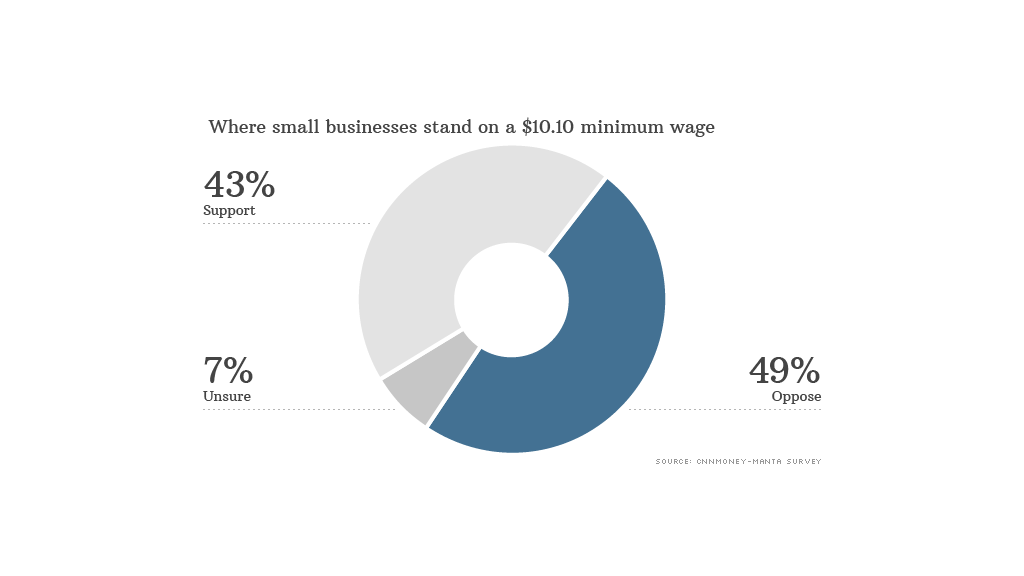
President Obama is expected to push for a federal minimum wage increase in his State of the Union address Tuesday -- and it's likely he'll get a mixed reaction from small business owners.
They are divided on the issue, according to an exclusive CNNMoney-Manta survey. About 49% of the 1,278 respondents said they do not support a proposal to raise the federal minimum wage from $7.25 to $10.10. About 44% said they support the proposal. The remaining 7% were unsure.
Many owners who supported a wage hike say they don't believe their workers can live on minimum wage and already pay them more. About 95% of respondents agreed that $7.25 is not a living wage and only 7% said they pay any of their workers that hourly rate or the minimum set by their state, which can be higher.
Related: How will a minimum wage hike hit businesses?
But more than 20% said they pay some employees between $7.25 and $10.10 an hour. That means if a federal wage hike is passed, these small business owners would have to raise wages for employees in that range.
There are currently 1.6 million workers who earn the federal minimum wage, according to the Congressional Research Service. And the liberal-leaning Economic Policy Institute estimates that an additional 17 million make between $7.25 and $10.10 and would see wages increase as well.
And sometimes business owners give pay raises across the board in order to preserve their wage structure. So a mandated increase to $10.10 could raise the pay for the 11 million workers who make just above the new minimum, too, according to the EPI.
President Obama called for a minimum wage increase in last year's State of the Union, but Congress has not moved forward. House Republicans voted down a Democratic proposal to raise it to $10.10 last March. They argue that raising wages makes it more difficult for small employers to hire and stymies growth opportunities.
Related: The hidden costs of a minimum wage hike
26% of survey respondents said a hike to $10.10 would cause them to cut back on employees or their hours, and 32% would raise their prices. Almost half, though, said an increase would not force them to make any changes to their business.
But that does not mean it wouldn't cut into their profits. Sometimes a business owner's hands are tied when it comes to the number of employees they need -- which can be regulated by the government -- or the prices they can charge -- which could be set under contract.
Some states are acting even without the federal government. On Jan. 1, thirteen states raised their minimum wages by varying degrees, and later this year, two Maryland counties, Washington D.C., and the state of California will follow suit. Even without Congress, Obama could sign an executive order raising the minimum wage for companies that get federal contracts, subcontracts and grants.



